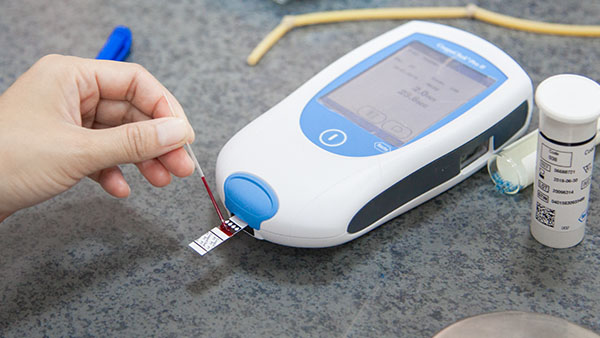Inhealthcare has collaborated with Health Call to deliver a home monitoring service for the 2,500 patients in the County Durham and Darlington Foundation Trust (CDDFT) region on the blood- thinning medication warfarin.
The automated service has transformed how patients on long-term anticoagulation medication warfarin are monitored.
Challenge
Patients on warfarin need to attend clinic every few weeks for a simple blood test to check how quickly their blood clots, which is measured using the international normalised ratio (INR).
- With warfarin clinics at maximum capacity, there was a need to look at more efficient ways of delivering anticoagulation services.
- Attending clinic every few weeks for a simple blood test is disruptive to the lives of patients.
- Visits can also mean long car journeys and expensive car park fees.
- Complex patients required quality clinician time and there was a need to address pressures on the existing service via better patient monitoring, triaging and reducing unnecessary or nonattendance at clinical appointments.
- Improving the use, focus and skill mix of existing staff meant that costs could be cut by reducing the time patients spent in the clinic without compromising the quality of care delivered.
Solution
Our INR self-testing service enables patients to self-test and receive their new warfarin dose remotely via 4s DAWN anticoagulation software.
- The patient takes a finger prick blood sample and inserts it into the Roche INR self-testing device (CoaguChek®).
- The patient sends their reading to the local clinic via a communication method of choice.
- Our technology integrates this data directly into patient records.
- The patient’s new warfarin dosage is relayed back to them, following a calculation by a specialist nurse or GP, and supported by an anticoagulation computer support software system.
Benefits of the service
- Reduces the time it takes for the patient’s dose to be relayed back to them, and for their medical records to be updated.
- Increases capacity and frees up valuable nursing and GP time by reducing the number of face-to-face visits.
- This means more time can be spent with complex patients, increasing the quality of care for everyone.
- Cuts costs by reducing the time patients spent in the clinic.
- Improves patient’s quality of life and reduces disruption.
- Reduces unnecessary car journeys, supporting the delivery of a “net zero” NHS.
- Improves health outcomes by enabling patients to take a more active role in the management of their health, whilst remaining under the remote supervision of their care team.
Results
- Time in Therapeutic Range (TTR) increased by an average of 20% for 70% of those on the service.
- With 4S DAWN’s integration time required to dose patients fell from an average of 5 minutes to just 30 seconds.
- From March 2013, to August 2020, the service has saved the Trust over 55,000 appointments.
- 100% of patients on the service said they would recommend the service to others.

